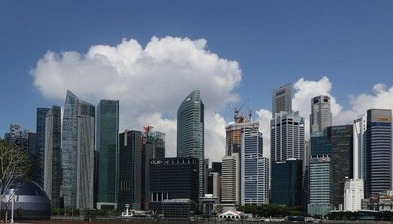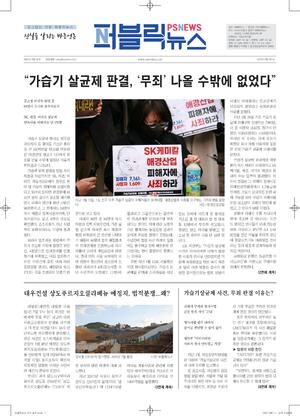
지난 8월, 싱가포르 정부는 시민들이 코로나19 백신을 접종받을 수 있도록 독려하기 위해 완전히 예방접종을 받은 사람들이 누릴 수 있는 많은 이점을 발표했다. 백신 접종을 거부하는 이들은 많은 제약을 받게 된다.
싱가포르는 팬데믹 이후 경제 회복과 성장을 창출하고 지역 사회의 안전을 보장하기 위해 많은 기업이 백신 접종을 한 고객들만 받고 있다. 엄격한 격리는 즉시 효과가 있었다. 지난 8월 8일 기준 2회 접종 완료자는 70%였으나 2주만에 예방 접종을 받은 사람들의 수가 78%로 증가했다.
예방 접종을 완료한 사람들은 식당을 다시 방문하여 식사를 할 수 있었고, 일주일 후 엄격한 재택 근무 규칙이 완화되어 기업들은 직원의 최대 50%가 일할 수 있게 되었다. 그들은 사무실에서. 또 쇼핑몰과 영화관 등에서 예방접종자 수용인원을 확대했다.
모든 사회적 거리두기 의무가 있는 사업주들은 코로나19로 좌절해 왔으나, 인구의 거의 80%가 백신을 완전히 접종받은 요즘에는 2년 만에 마침내 다시 사업을 재개하기 위해 움직임을 보이고 있다.
그러나 아직 예방 접종을 받지 않은 사람이 다수 존재한다. 이들은 격리도 거부하고 있다. 이로인해 이들은 사회에서 소외되고 있다. 어떤 사람들은 잠재적인 심각한 부작용의 가능성에 대한 우려 때문에 최대한 오랫동안 예방 접종을 미루고 있다.
그러나 미접종자에 대한 새로운 제한 조치가 발표되자 많은 사람들이 사회에서 소외되지 않고 자유로운 외출을 위해 백신을 맞기로 결정하고 있다.
싱가포르는 지난 8월 10일에 발효된 규정에 따라, 13세 이상의 예방 접종을 받지 않은 사람들은 호커 센터를 제외한 식음료 매장에서 식사를 하지 못하도록 금지하고 있다. 예방 접종을받지 않은 개인은 체육관, 영화관과 같은 많은 실내 활동을 제한하고 2명 이상은 이동의 제한을 받는다.
하지만 이들이 사회 활동에서 완전히 버림받은 것은 아니다. 이 문제를 해결하는 방법이 있지만 물론 비용이 많이 들 수 있다. 예방 접종을 하지 않은 사람이 승인된 의료 기관에서 코로나19 검사 결과 음성이 나오면 식당에서 식사할 수 있으며 검사 비용은 S$30~S$65(한화 2만 6000원~5만 7000원)이다. 백신 접종을 무료로 받는 대신, 주사를 거부한 사람들은 사회 활동에 다시 참여하기 위해 상당한 비용을 지불해야 한다.
반면에 접종을 받는 것이 인류를 위한 사심 없는 봉사라고 믿는 사람들이 많이 있다. 자신과 타인의 안전을 생각하는 배려이다. 팬데믹으로 인해 사회 활동을 못하고 있어 백신을 맞는 것이 사화 관계망 재건과 비즈니스 재건, 국가 경제 회복을 촉진하는 가장 좋은 방법이다.
소셜 미디어에서 예방 접종을 받은 사람과 그렇지 않은 사람의 차이를 알아차리는 것은 쉽다. 예방접종을 받은 사람들은 자신의 장점인 정상적인 생활을 하고 있지만, 백신 접종을 거부하는 이들은 그렇지 못한다.
백신 접종을 하지 않은 일부 개인은 이것이 자신의 자유에 위배된다고 주장하며 싱가포르에서 차별을 받고 있다고 주장한다. 그러나 자신과 다른 사람들을 잠재적 위험에 빠뜨리는 자유는 비판을 받는다.
싱가포르 정부는 1년 반 동안의 봉쇄, 마스크 착용, 사회적 거리두기, 사회적 활동 제한을 극복하려면 백신 접종만이 안전한 국가를 열수 있다고 믿고 있다. 또 모두가 안전할 때까지 전 세계 정부는 시민들에게 백신 접종을 촉구하고 있으며, 사회 활동을 계속 제한하고 있다.
세계는 코로나에 지쳐가지만, 우리는 여전히 새로운 일상을 향해 나아가고 있다. 물론 백신의 도움을 받는다면 더욱 빨리 회복이 가능할 것이다.
In August, to encourage citizens to receive Covid-19 vaccines, the Singapore government announced many advantages that fully vaccinated people can have. In other words, there are many restrictions and limitations for those who refuse to get jabbed.
With the aim at creating economic recovery and growth after the pandemic, as well as ensuring safety among the communities, many businesses are allowed to welcome customers, as long as they are fully vaccinated.
The strict segregation immediately had been effective and risen up the number of people received vaccinations from 70 percent who had completed the two-shot regimen as of August 8th, to 78 percent just within two weeks later.
On August 10th, restaurants reopened to in-person dining for those who were fully vaccinated, and a week later, strict work-from-home rules was loosen, allowing as many as 50 percent of employees to work in their office. Moreover, shopping malls and cinemas were allowed to expand capacity for those who were vaccinated, and they also stopped screenings temperature at entrances.
Not mention how frustrated it was to business owners with all the social distancing obligations, now when almost 80 percent of the population were fully vaccinated, they are thrived to finally open up their business again after two longest years.
However, beside the joy of closely getting back to normalize, there are still not so minority of people who remain unvaccinated; and they are not happy about this segregation. They felt ostracized and left out from the society.
Some people tried to hold off getting vaccinated for as long as they could due to the concerns over potentially severe side effects and the odds of adverse reactions. But when the new restrictive measures for unvaccinated people was announced, many of them felt the pressured of being outcasted and decided to get the vaccine in order to have a sense of freedom to go to places.
Furthermore, the regulation that went of effect on August 10th enjoined unvaccinated people over the age of 13 from dining in food and beverage outlets, except for hawker centers. Unvaccinated individuals are also restrained from using many indoor activities such as gyms, movie theaters, and have been encouraged to restrict their movements to group sizes of two people.
They are not completely outcasted from the social activities; there are ways around this but of course, it can be very costly. An unvaccinated person may dine inside a restaurant if they present a negative Covid-19 test result from an approved medical unit that charges S$30 to S$65 (26,000 KRW to 57,000 KRW) for the test. Instead of getting vaccines for free, those refused to be jabbed have to pay quite expensive cost to rejoin the social activities.
On the other hand, there are many other people believing that getting the jab was a selfless act of service for humanity. It is a considerate and thoughtful about one self’s safety as well as others’ safety. Due to the pandemic, we as human missing so much of connection and receiving vaccines is currently the best way to rebuild connections, businesses and boost up the national economic recovery.
Nonetheless, it is obvious to notice the divide between vaccinated and non-vaccinated individuals on social media. Vaccinated people are going on with their advantages, a normal life, but the anti-vaxxers are angry and causing themselves more mental trauma.
Some unvaccinated individuals claim that this is against their freedom, and they are so discriminated against in Singapore. But what kind of freedom that put oneself and others to greatly potential danger?
After a year and a half of lockdowns, mask-wearing, social distancing, and restrictions on social activities, vaccines have a huge effect in helping a nation open up again safely. Even though no one is safe until everyone is safe, governments around the world urges their citizens to receive vaccines and continues limit social activities.
The world is tired of Covid, but we are still moving forward to our new normal life. Of course, with the great help from vaccines, if we do it together, we will do it fast.
[퍼블릭뉴스는 현지 해외통신원이 직접 취재해 작성한 기사를 한국어와 현지어로 보도하고 있습니다. 본 기사는 해외뉴스의 번역본이 아니며 저작권은 퍼블릭뉴스에 있습니다. 무단 복사를 금지합니다.]




